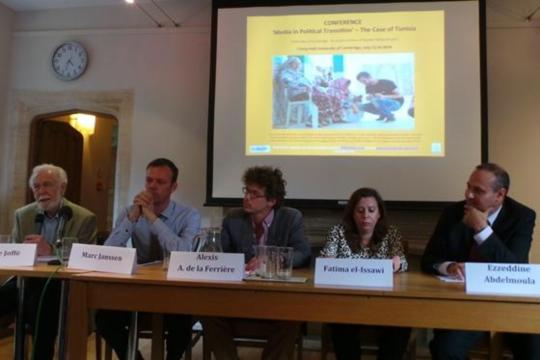
 |
AlJazeera Centre for Studies and Cambridge University’s Centre for the Study of the International Relations of the Middle East and North Africa have just concluded their joint conference, “Media in Political Transition: The Case of Tunisia”. The conference was held in the United Kingdom 15 through 16 July 2014.
During the conference, researchers, academics and Cambridge graduate students discussed Tunisia’s media structure in the post-revolution era and the roles it plays within regulatory and legal frameworks. Participants examined the nature of the relationship between the Tunisian government and the media, the credibility of the media’s depiction of current events and social media user practices. The outcome of a research collaboration signed last year between the university and the centre, the conference focused on the Tunisian political scene, its most prominent components and the role played by the media at this stage. Participants addressed the various reform models adapted in Tunisia and discussed obstacles that limit the possibility of replication in neighbouring countries. It was concluded that the relationship between the media and the government in Tunisia remains troubled and that this could adversely affect the transition process.
 |
Conference participants also approached the issue of the media and political change in the Arab region and the status of Tunisian women and their relationship to media and politics. The media has played a key role in changing the political scene in the Arab world, significantly expanding political discourse from a circle of elites to the public sphere; AlJazeera Media Network was used as an example. As for Tunisian women, research indicates a multi-faceted approach to using cyberspace for communication and for influencing public opinion.
It is expected that this research collaboration will be expanded to other countries within the next two years, prompting comparative studies that will add new dimensions to empirical knowledge of the relationship between media and politics.